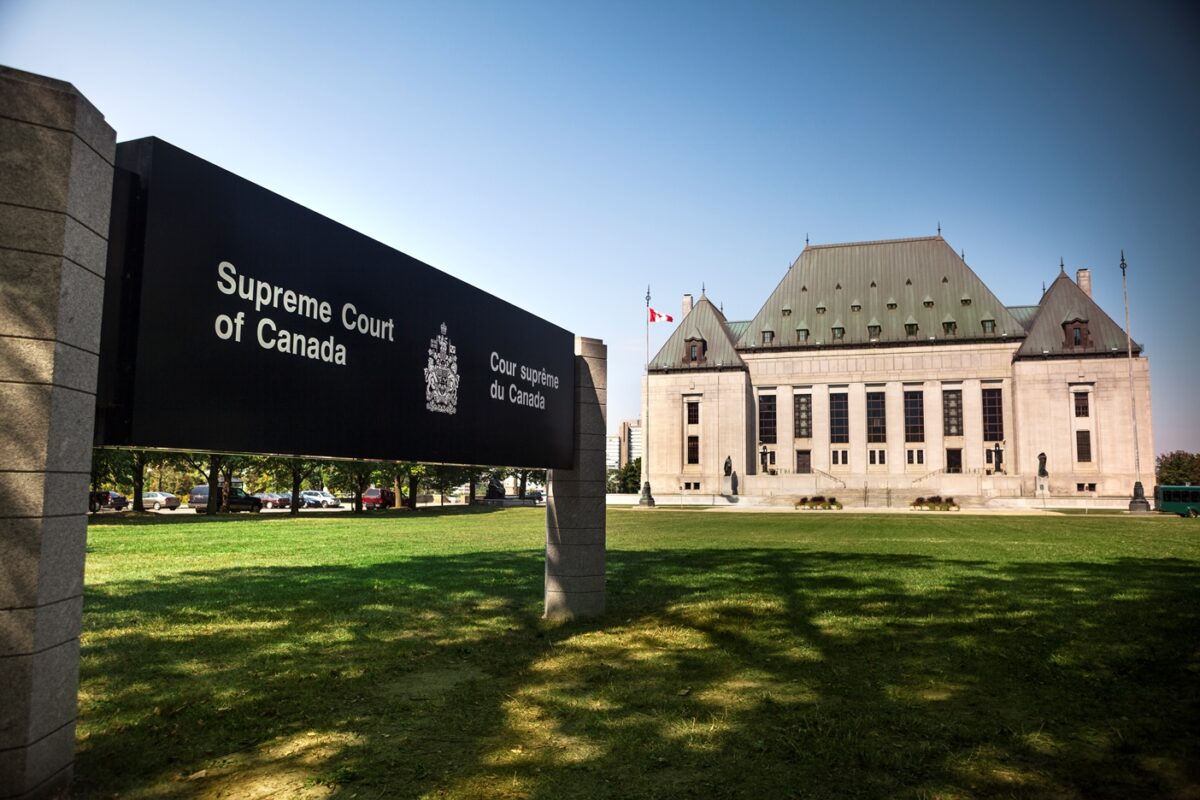Honour of the Crown applies to reconciliatory contracts between the Crown and Indigenous groups

On November 27, 2024, the Supreme Court of Canada (“SCC”) released its decision in Quebec (Attorney General) v. Pekuakamiulnuatsh Takuhikan and found that the Crown acted contrary to good faith and the honour of the Crown when it continuously refused to renegotiate police funding under a contract with a First Nation.
This decision has significant implications for the negotiation, interpretation and implementation of certain types of contracts between Indigenous groups and federal or provincial governments. When the principle of the honour of the Crown applies to a contract, the Crown must meet a standard of conduct that is higher than in an ordinary contractual relationship and must act in a way that fosters reconciliation.
Background
In 1991, following a report that found Indigenous communities in Canada did not have access to the same level and quality of police services as other communities, the Government of Canada adopted the First Nations Policing Policy. This policy allowed the federal government, provincial/territorial governments and First Nations to negotiate tripartite agreements to establish police services responsive to the needs and culture of each Indigenous community.
In 1996, Pekuakamiulnuatsh Takuhikan Innu First Nation (“Takuhikan”) entered into a tripartite agreement with the Government of Canada and Government of Quebec in which Takuhikan would administer police services in the community of Mashteuiatsh. Under the agreement, funding for the policing services was split between Canada and Quebec, and Takuhikan was responsible for any deficits incurred. The governments continued to renew the agreements thereafter, but Quebec and Canada refused to increase funding under the agreement.
Starting in 2009, the funding provided for in the agreements proved to be inadequate to maintain the police force. Throughout the years, Takuhikan made numerous attempts to receive adequate funding for its police force. However, between 2013 and 2017, Takuhikan assumed deficits totaling close to $1,600,000.
Procedural history
In 2017, Takuhikan brought legal proceedings against Canada and Quebec claiming reimbursement for the accumulated deficits. Takuhikan argued, in part, that Quebec and Canada breached their obligations to negotiate in good faith and to act in accordance with the honour of the Crown with respect to the funding of its police force. The Quebec Superior Court dismissed Takuhikan’s application finding that the honour of the Crown did not apply.
The Quebec Court of Appeal allowed the appeal and ordered the governments of Canada and Quebec to repay the policing deficits. The Court found that, pursuant to the First Nations Policing Policy, Canada and Quebec solemnly undertook to fund the police force at a level equal to that of non-Indigenous communities and when they failed to do so, they breached their duty to act honourably.
Canada paid the amount awarded against it by the Court of Appeal. Only Quebec appealed the Court of Appeal’s decision.
Supreme Court of Canada decision
Quebec argued that the Court of Appeal improperly expanded the scope of the principle of the honour of the Crown. The Court rejected Quebec’s argument. Eight of the nine judges ruled that the province of Quebec acted contrary to good faith and dishonourably when it continuously refused to renegotiate police funding. The Court ordered Quebec to pay damages to Takuhikan.
The Court said the common law requirement of good faith applied to the contract and confirmed that a breach of good faith in negotiating a renewal contemplated by a contract may be a source of contractual liability. They said that Quebec’s refusal to discuss an increase in funding constituted unreasonable conduct contrary to the requirements of good faith.
Significantly, the Court also said that the principle of the honour of the Crown applied to the contract and that Quebec failed to live up to this obligation. They went on to discuss what is required when the honour of the Crown is engaged by a contract:
- The Crown must negotiate, interpret and apply contracts with honour and integrity and avoid even the appearance of sharp dealing;
- The Crown must avoid adopting an intransigent attitude;
- The Crown must interpret the terms of the contract generously, “comply with them scrupulously” and avoid any breach; and
- The Crown must also act honourably in any negotiations to change or renew the contract.
By continuously refusing to renegotiate the level of funding for the Indigenous police force, knowing that the police force was underfunded and despite Takuhikan’s repeated complaints, Quebec conducted itself in a manner that fell well below the standard of honourable conduct.
The SCC found that, unlike the requirement of good faith, not every agreement between the Crown and an Indigenous group will engage the honour of the Crown. The honour of the Crown applies to the performance of contracts between Indigenous groups and the State that are intended to foster reconciliation. The Court set out the following test to be used to identify contractual undertakings that attract the honour of the Crown:
- The contract at issue must be entered into by the Crown and Indigenous group by reason and on the basis of the group’s Indigenous difference. The principle of the honour of the Crown is based on the special relationship that exists between the Crown and Indigenous peoples and is only engaged by an obligation assumed by the Crown on the basis of this special relationship, which is different from the relationship it has with the general population. Further, the honour of the Crown will only apply if the contract has a collective dimension. Agreements relating to individual rights, even if they are between the State and an Indigenous contracting party, will generally not engage the honour of the Crown.
- The contract at issue must relate to an Indigenous right of self-government. The right to self-government doesn’t have to have been proven in Court or established in a Treaty. A credible claim is sufficient to impose duties of honourable dealing.
- The Court noted that it wasn’t excluding the possibility that in future cases other Indigenous rights or interests might also engage the honour of the Crown in connection with a contract.
The Court found that the tripartite agreement met the above test as only Indigenous communities could enter into agreements related to Indigenous police forces and it was entered into in the context of the nation-to-nation relationship between Quebec and Takuhikan. Further, the tripartite agreements concerned the Indigenous right of self-government claimed by Takuhikan in matters of public safety in the community. As the tripartite agreements contemplated renegotiation of the funding clauses, the honour of the Crown required Quebec to conduct itself honourably during renewal negotiations, which Quebec failed to do.
In deciding the remedy for a breach of the honour of the Crown, the Court said that its analysis must be “focused on reconciliatory justice to ensure that the order made will have the effect of restoring the honour of the Crown.” Reconciliatory justice is not intended only to compensate for financial harm suffered for past wrongs, but to put the parties back on a path to reconciliation. It is a highly contextual analysis. In this case, the SCC decided to uphold the amount of damages awarded by the Quebec Court of Appeal.
Key takeaways
The SCC’s decision expands the application of the principle of the honour of the Crown to certain types of reconciliatory agreements between the Crown and Indigenous groups, even where those agreements are not constitutional in nature. Furthermore, it has transposed certain obligations that have long been recognized in the context of Treaty making and implementation into the contractual context.
Courts are generally loathe to interfere in decisions about how governments allocate funding. The majority’s reasons arguably represent a rare departure from this position.
Given the volume of agreements between Indigenous communities and the State that have reconciliation as their purpose, it is expected that this decision will have wide-ranging impacts.
If you have questions about how this decision may impact any of your agreements with the Crown or about how this decision impacts your Nation, our Indigenous practice group is ready and available to assist you.
Note: This article is of a general nature only and is not exhaustive of all possible legal rights or remedies. In addition, laws may change over time and should be interpreted only in the context of particular circumstances such that these materials are not intended to be relied upon or taken as legal advice or opinion. Readers should consult a legal professional for specific advice in any particular situation.




